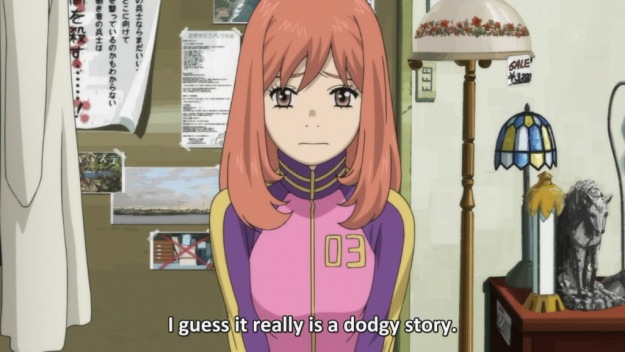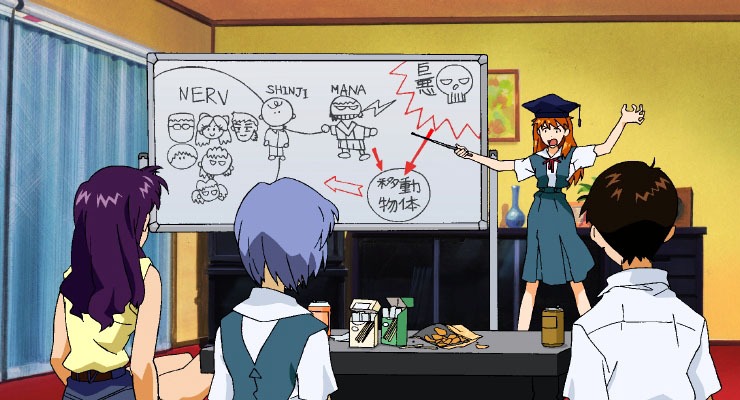Anime and Manga blogging is a common hobby for those of us who are interested in sharing our thoughts with the rest of the online community. However, the Net is littered with the debris of good intentions and burned out writers. This article seeks to provide a little advice on how to create a successful and long lasting anime/manga blog.
1) Decide your limits

2) Consider the Audience

A blogger also has to consider the audience’s comments. People will disagree with you and even get angry. It doesn’t reflect well on you if readers see you enter a flame war with a commenter. A blogger needs to have a thick skin and stay objective. We are human; we are wrong sometimes. Admit it when it is true. Hold your ground (nicely!) when it is not.
Readers like regular post schedules. It can be hard to keep on schedule sometimes. However, regular post schedules become more important as your readership grows. Decide on a reasonable schedule and stick to it! We post each Sunday. Well, sometimes I forget and have to post on Monday. No one is perfect. The best way to keep on schedule is to write ahead. We usually have around 15 draft articles waiting to be posted. I am still in graduate school and often don’t have time to write anything. Fifteen articles is enough that I can avoid writing for an entire semester and remain on schedule. Although, I make sure not to do that! Keeping a buffer helps keep the pressure off and keeps the blog fun.
3) Don’t stare at your hit counter
 It takes time to build a successful blog. High readership involves networking with other bloggers: reading their posts regularly and commenting is the best method. A successful blog is one that has a regular readership and a positive impact. It doesn’t matter if you only have 10 readers. What matters is they like what you write and are positively influenced by it. JP doesn’t see a huge readership by any means, but I am satisfied to see regular readers and a positive impact on them. One of the best compliments you can have from a reader is a correction. It means they care enough to read your writing and want to help you be as correct as you can be.
It takes time to build a successful blog. High readership involves networking with other bloggers: reading their posts regularly and commenting is the best method. A successful blog is one that has a regular readership and a positive impact. It doesn’t matter if you only have 10 readers. What matters is they like what you write and are positively influenced by it. JP doesn’t see a huge readership by any means, but I am satisfied to see regular readers and a positive impact on them. One of the best compliments you can have from a reader is a correction. It means they care enough to read your writing and want to help you be as correct as you can be.
4) Research your articles

Now by research I don’t mean Wikipedia. Unlike many librarians, I don’t have anything against Wikipedia. It is, however, just a starting point. It is easy to research anime/manga topics online. Your local library will have databases and books about both anime and manga. You can also use Google’s “site:edu” command to narrow your search to colleges. Google Books and Google Scholar are also good choices.
There is an amazing amount of research out there about the mediums and other aspects of Japanese pop culture. In fact, in librarian circles we recognize manga as superior to standard books for teaching certain literacy skills (If you want to read more about this, look up the reference article below at your local library). There is even extensive research on yaoi’s benefits for teen girls.
5) Consider Copyright
All bloggers need to consider copyright laws. It is easy to unknowingly violate them. While it is unlikely you will get into trouble, observing copyright laws gives your blog more professionalism. Your blog represents you. You never know, a future employer may even see your blog some day.
I wrote an overview of US Copyright law if you want to learn more.
References
Schwartz, Adam & Rubinstein-Avila, Eliane (2006). Understanding the manga hype: Uncovering the multimodality of comic-book literacies. Journal of Adolescent & Adult Literacy 50[1]. 40–49. doi:10.1598/JAAL.50.1.5.


Hey there! I totally resonate with your perspective on anime and manga blogging. It’s true that many enthusiasts start with great intentions, but the online world can be challenging. Your insight into creating a successful and long-lasting blog is much appreciated. I’m looking forward to more tips and advice – keep those articles coming! Cheers!
I’m glad you found the article helpful. It’s hard to keep your own goals in mind and not fall into the trap of numbers as a measure for success. Those numbers can be quite disheartening!
This is a wonderful write ups and thanks for the tips. I’d been working hard to improve my anime blog for quite some time and hopefully i’ll be able to build a good one such as yours. cheers!
Thank you! I wish you the best with your blog. If you have any questions, please ask.